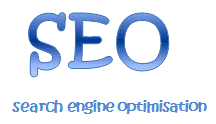Promoting a blog
Most people who start a blog would like to have some people read it 🙂 And many would like more people to read their blog – whether it is to promote their business, share their passion or express their opinions and experiences, they want someone to read what they have written.
So how can you promote your blog, getting more readers?
I have found a few blog posts recently that cover parts of this topic so I thought I would share them before I gave any tips of my own…
How to Drive Traffic to Your Blog Through Word of Mouth Marketing
Powering Up Your Blog With These 26 Power Lists/Rankings (the list is handy, but the site isn’t impressive with many faulty images, etc)
101 Internet Traffic Generation Strategies – Part 1 Not all the tips will be relevant to your blog, but you may get some ideas.



Recent Comments